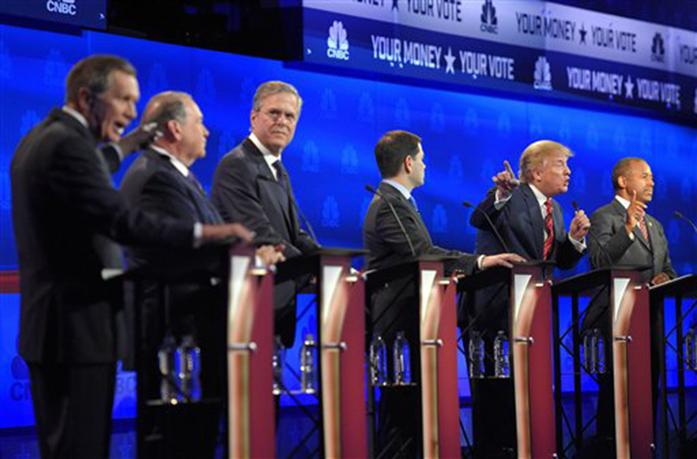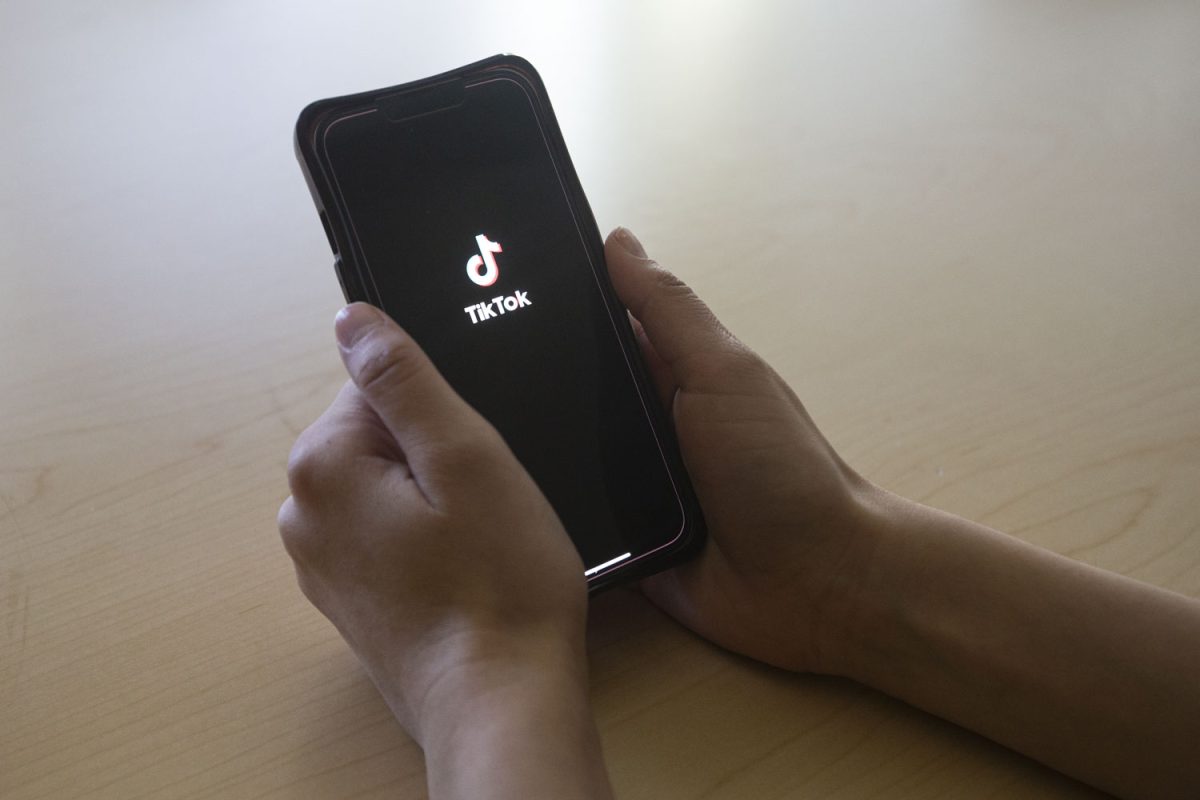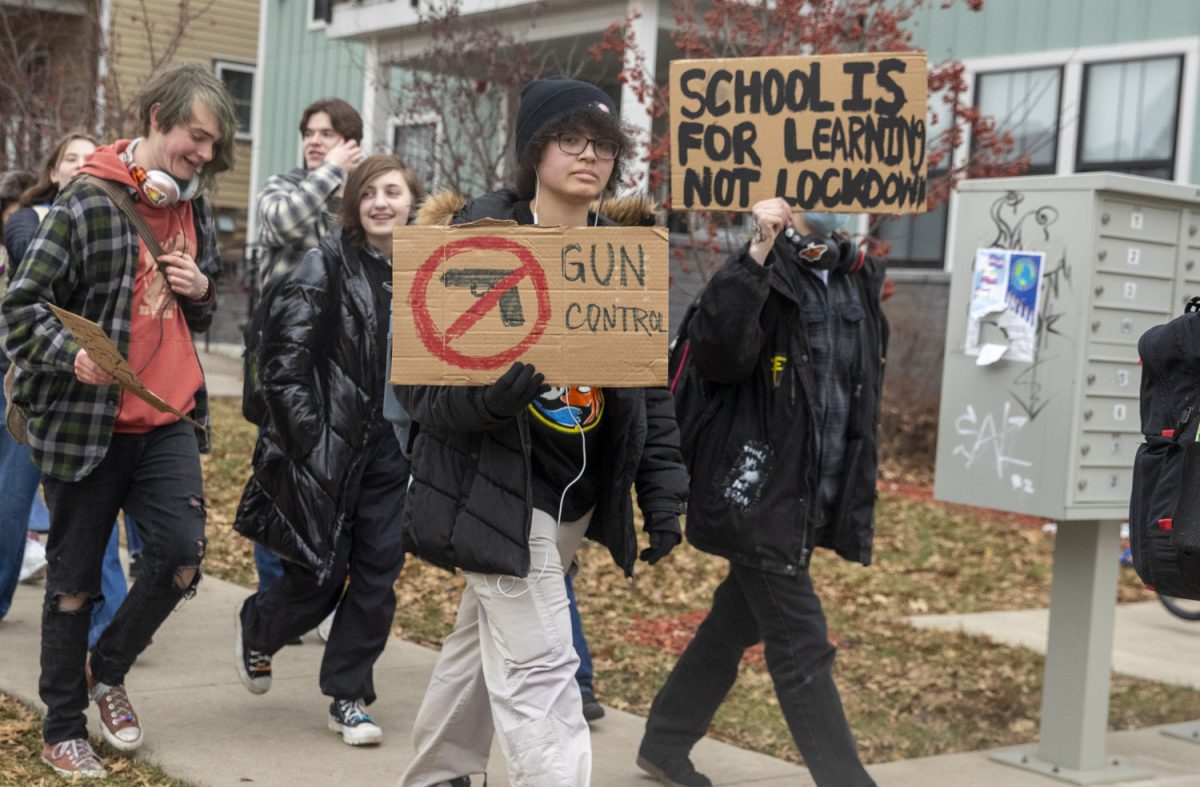After the last Republican debate, some have criticized the conduct of the moderators and the format of televised debates. Is it time for debates to change platforms?
Point: Move debates to social media
Recently, GOP candidates Ben Carson and Donald Trump have been converging toward the same level of outlandish statements. While Trump’s antics are far and away more absurd than Carson’s, both candidates have used fairly extreme opinions to garner attention.
However, when Carson’s campaign proposed last week that the GOP move away from televised debates and toward debates on popular websites, such as Facebook and YouTube, I had to agree.
Last week’s CNBC GOP debate was a joke. To quote Chris Christie, “We have ISIS and Al Qaeda attacking us, and we’re talking about fantasy football?”
Christie’s question came after one of CNBC’s gaggle of moderators asked about daily Fantasy Football leagues such as FanDuel and DraftKings. An important topic of debate for any presidential candidate, to be sure …
Moving presidential debates to an entirely online format makes sense for a lot of reasons, and a bumbling moderator is possibly the smallest.
For example, according to the Census Bureau, only 38.0 percent of 18- to 24-year-olds showed up to vote in the 2012 elections. And, of course, 2012 was a presidential election; the numbers are even lower for congressional election years without a presidential election.
While moving debates to an online format won’t guarantee more young people will rush to the polls, it does guarantee that more young people will pay attention. I can no longer count the number of times I’ve reminisced about Mitt Romney’s “binders full of women” blunder from a 2012 debate to fellow millennials who stare at me blankly.
Furthermore, social-media sites such as Facebook, Twitter, and YouTube are ideal locations for 21st-century debates, most of which already have bottom-of-the-screen tickers with questions solicited on social media.
Social media-based debates could be far more flexible and would provide unique opportunities. Interactive displays, real-time polls, integrated candidate bios and platform points, and a more direct connection between candidates and voters, to name a few.
Last, an online format would require candidates to interact with a form of communication that is more representative of the climate in which they would operate as president. It would force candidates and moderators to think and act quickly as questions, and comments will be coming from thousands, if not millions, of diverse perspectives.
This isn’t to say that all televised debates are in shambles; CNN’s debate moderated by Jake Tapper, for example, was not nearly the failure that CNBC’s was. After all, televised debates have been informing the voting public since Nixon and Kennedy ran in 1960. But after CNBC’s debate, it’s clear that it is time for a change, and options abound.
— Joe Lane
Counterpoint: Gatekeeping continues on social media
Political-party debates are an enigma, in terms of not only their purpose but also their procedure. Run and mediated by major news networks, television debates feature some of the most bizarre environments in which to hold an arena for discussion and argumentation among potential leaders of this country. From carefully curated questions from the “audience” to the moderator’s handpicked questions coming from the editorial top, there are countless levels of gatekeeping in the process.
Political supernova and former neurosurgeon Ben Carson (I make the astronomical reference because I predict his campaign will fume to a similar end, for reasons beside this article’s argument) told the guards of the GOP and its constituents that political debates should cut their cord on television, shifting toward more user-interactive platforms, such as Facebook or YouTube. So why should we stay plugged in?
I mean, a moderator seemingly cutting off candidates’ spiels to talk shop on Fantasy Football may come off as unruly and outlandish in the realm of politics. But hey, I’d like to know if Carson would field the Giants’ defense this week. He’s reportedly a human being after all (more so than Hillary Rodham Clinton, at the very least). And if Republican debates were moved to social media, then I most likely wouldn’t get the chance to hear about Carson’s, or any other candidates’, fantasy-league standings or habits.
In fact, I probably would never know about another Republican debate. On social-media platforms, particularly so on the Goodbook, my news feed is tailored to my metadata as well as posts approved via little cyber-thumbs.
Facebook has disclosed this in numerous updates. Every little search I make in that white bar at the top of page is recorded. All that meaty data are also gathered from searches on Google, YouTube, Spotify, etc. Online purchases and news consumption factor in quite heavily as well. Each of those ticks is counted to create an algorithm, which alters what enters my news stream. As a result, I get personalized advertisements, and more importantly posts from friends, liked pages, and news sources, reflecting all of that jazz.
Furthermore, I can alter what types of posts I see in my feed by a few preferential clicks under my settings. In theory, I would never have to hear about Carson or Donald Trump again (theoretically, I said) or see posts from certain high-school friends who decided to go to Iowa State rather than here.
All of this sounds like a hell of a lot more gatekeepers than a simple trickle-down from the media agencies editorial team to the moderator. Anyway, if I wanted to hear about real policy outlines by Republican, or Democratic, candidates, I would check their official platforms, campaign donors, and political track record. Hearing their spun rhetoric is just as much outlandish as hearing their starting Fantasy quarterback.
— Paul Osgerby










